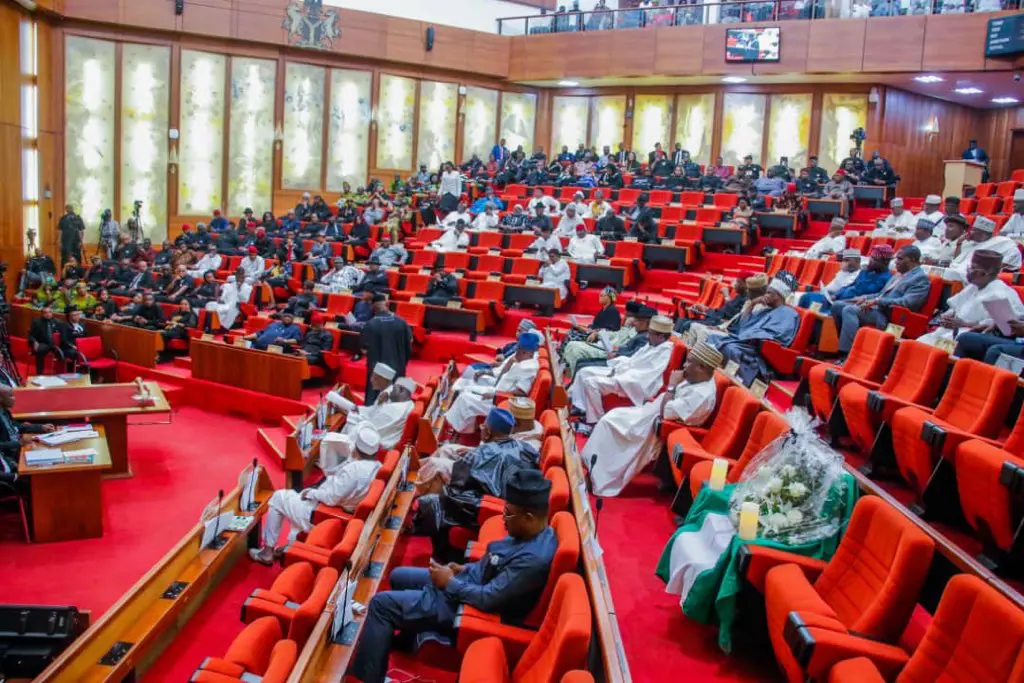The Senate has commended President Bola Ahmed Tinubu, Senate President Godswill Akpabio and key financial and anti-corruption agencies for their roles in securing Nigeria’s removal from the Financial Action Task Force (FATF) Grey List, describing the development as a major milestone for the country’s financial integrity and international reputation.
It also mandated its Committee on Anti-Corruption and Financial Crimes to sustain oversight of the AML/CFT framework; and encourage stronger collaboration between the public and private sectors to ensure Nigeria remains a benchmark for transparency and good governance among developing nations.
This followed the adoption of a motion sponsored by Emmanuel Udende under Matters of Urgent Public Importance in plenary on Tuesday.
Moving the motion, Udende noted with “great satisfaction” the FATF announcement delisting Nigeria, saying it reflected “remarkable progress in addressing strategic deficiencies in its Anti-Money Laundering and Countering the Financing of Terrorism (AML/CFT) framework and demonstrated strong commitment to global financial standards.”
He recalled that Nigeria’s previous inclusion on the FATF Grey List exposed the country to “heightened international scrutiny and reputational risks,” which eroded investor confidence and limited access to global financial markets.
According to him, the removal followed “the successful implementation of extensive reforms and policy measures by the Executive, National Assembly, and several regulatory and enforcement agencies.”
He also recognised “the invaluable leadership and contributions of President Bola Tinubu, the President of the Senate, the Nigerian Financial Intelligence Unit (NFIU), the Economic and Financial Crimes Commission (EFCC), the Independent Corrupt Practices and Other Related Offences Commission (ICPC), the Central Bank of Nigeria (CBN), and other relevant stakeholders whose coordinated actions culminated in this national achievement.”
The Senate expressed delight that the delisting has boosted investor confidence and reassured the international community of Nigeria’s renewed commitment to transparency and accountability. It observed that the country’s financial and regulatory systems had regained credibility and compliance with FATF recommendations, positioning Nigeria as a safer and more attractive investment destination.
Lawmakers noted that financial institutions, previously burdened by extra scrutiny and high compliance costs, would now enjoy smoother, faster cross-border operations, thereby improving trade facilitation and remittance inflows.
Udende added that the development would have “transformative impacts on Nigeria’s economy and governance systems by attracting sustained foreign direct investment across sectors such as energy, technology, agriculture, and manufacturing,” adding that the improved financial image would enhance regulatory stability, strengthen the naira, and deepen reforms to combat money laundering and illicit financial flows, while reducing the risk of international sanctions.
The Senate described the achievement as a collective national effort involving all arms of government, law enforcement bodies, the financial sector, and international partners, and stressed the need for sustained inter-agency cooperation to uphold Nigeria’s financial credibility.
